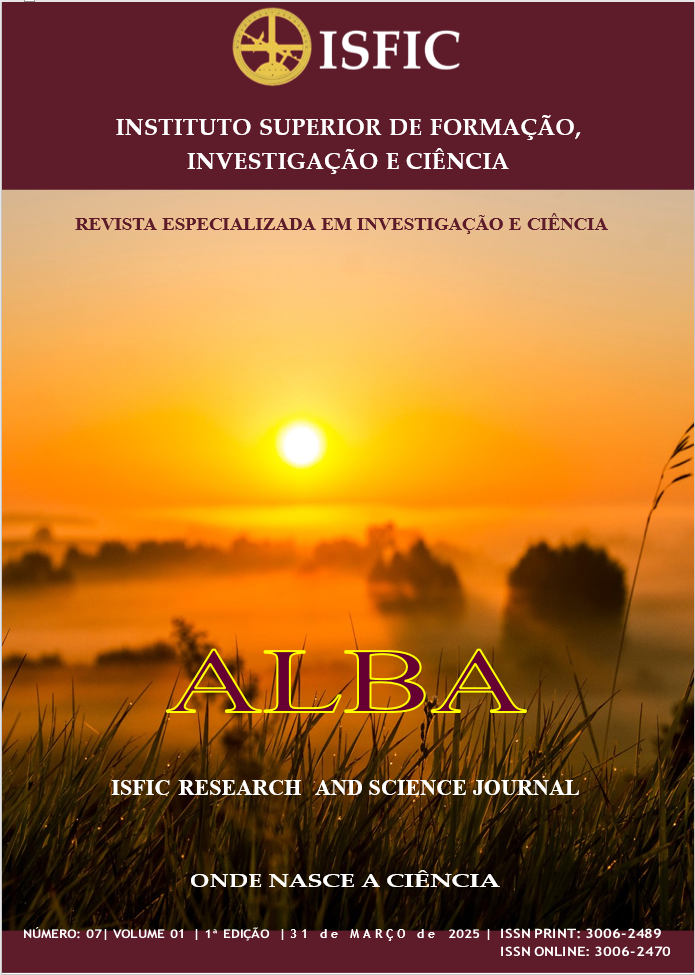AS IMPLICAÇÕES DA ECONOMIA INFORMAL FACE AO SURGIMENTO DOS PEQUENOS NEGÓCIOS DAS FAMÍLIAS DO MUNICÍPIO DE MALANJE: ESTUDO REALIZADO NO MERCADO MUNICIPAL DE MALANJE EM ANGOLA
Keywords:
Implications; economy, business, family.Abstract
The research in focus addresses the "Implications of the Informal Economy in the Emergence of Small Family Businesses in the municipality of Malanje ", with an emphasis on the study carried out in the municipal market of Malanje- Angola. The central question that guided this investigation was: What are the implications of the informal economy on the emergence of small family businesses in the municipality of Malanje? The general objective was to analyze the implications of the informal economy in light of the emergence of small family businesses in the municipality of Malanje, adopting the descriptive model aided by the quantitative approach. The research focused on vendors at the Malanje municipal market, with a population of 3000 vendors and a representative sample of 250 participants. Data collection was carried out using questionnaires. The results revealed that the majority of entrepreneurs operate in the market for a period of 2 to 5 years, with the lack of employment identified as the main motivator for business creation. A considerable number of participants perceive the contribution of business to family support as minimal. The main reason given for remaining in the informal market is the search for lower costs. Additionally, entrepreneurs face significant challenges related to competition and oversight. These results highlight the complexity of the informal economy in Malanje, emphasizing the importance of entrepreneurs in the market. This research contributes to a deeper understanding of the dynamics between the informal economy and the emergence of small family businesses in the province.
Downloads
References
Alves , L. M. (2001). Glossário de Termos Económicos. Citrat- FFLCH/USP: São Paulo.
Berg, C. (2007). Trabalho e Desenvolvimento Humano: Por que precisamos de uma abordagem da Economia Informal?. Instituto de Pesquisa das Nações Unidas Para o Desenvolvimento Social (UNRISD): Washington, D.C.
Bergo, C. (2011). Conceitos Básicos de Economia.Anbima: São Paulo.
De Soto, H. J. (1987). O Mistério do Capital: Por que o Capitalismo Triunfa nos Países do Ocidente e Falha em Outros Lugares. Record: Nova Iorque.
Field, J. C. (2008). Incentivos para Economia Informal: Implicações Para o Desenvolvimento e Proteção Social. Banco Mundial. Washington, D.C.
Filho, S. A. (2007). O Que é Trabalho Informal?. Brasiliense: São Paulo.
Figueredo, C. (2010). Novo dicionário da língua portuguesa. www.gutemberg.net 2010.
Kotler, P. (2003). Administração de Marketing: Análise, planeamento, implementação e Controle. Pearson Education: São Paulo.
Lemos, Gilvan , Trabalho Informal: uma visão multidisciplinar. Atlas: são Paulo 2016
Perry, Paul Jeffrey Informalidade: Fuga e Escolha. Centro de Estudos sobre Desenvolvimento Económico: Bogotá.
Pastore, J. Economia Informal No Brasil: Aspectos Quantitativos E Desafios Políticos. Revista do BNDES, 12(24), Rio de Janeiro. 2005
Tavares, M. (2015). Questão Agrária e Desenvolvimento na América Latina. Paz e Terra: São Paulo.







